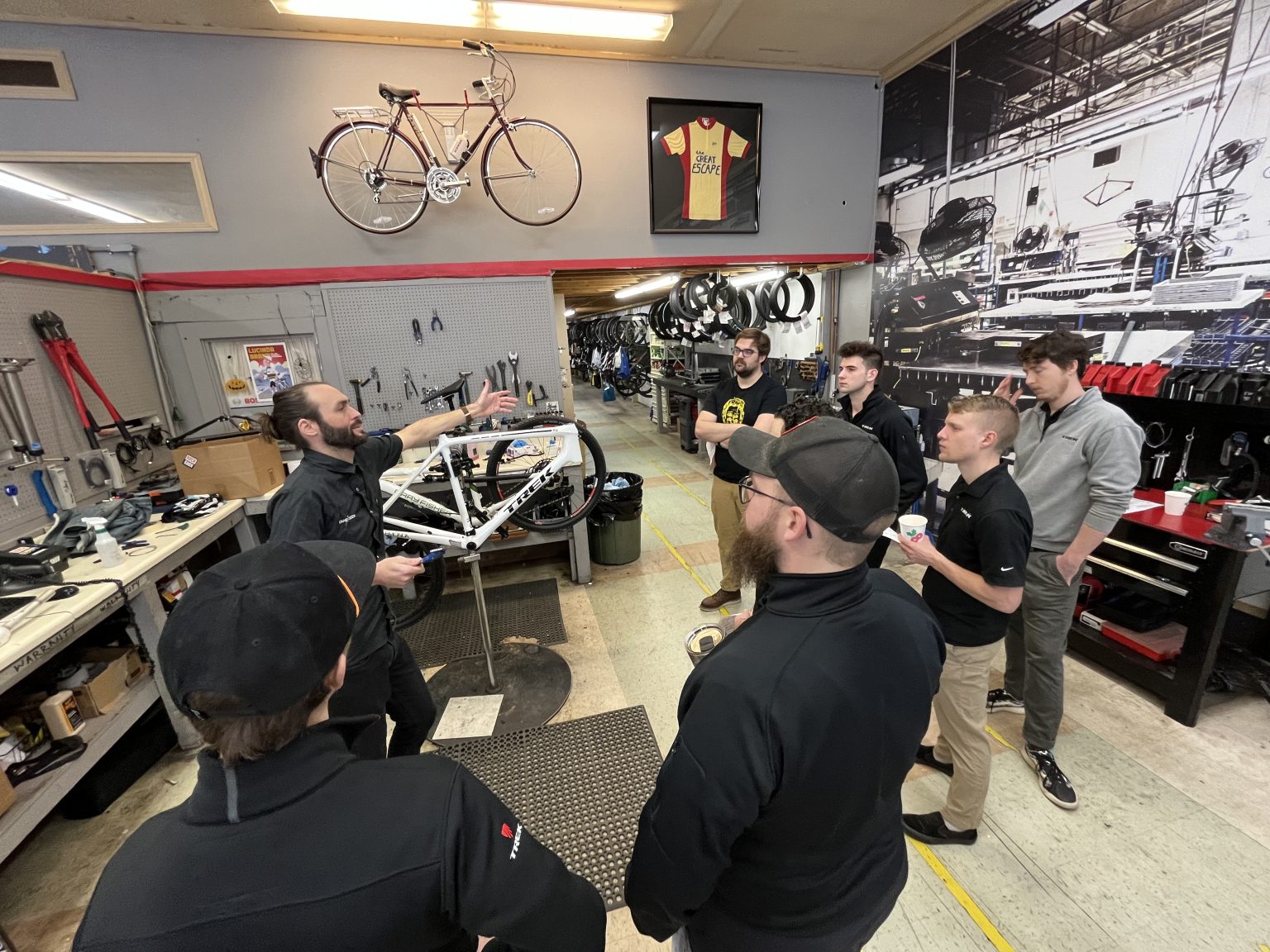Previous slide
Next slide


December 2023
“Customers are not asking for your product.” That’s what a shop said to us recently. It is disappointing and frustrating to hear. It implies we are not doing a good enough job. And to a degree it is true. We offer a lot of products for a company of our size – Cane Creek has introduced over one-hundred new products in the last seven years, half of which were all-new or were a major update/re-design. I am not aware of our competition being anywhere close to this, even those that are hundreds of times larger than Cane Creek. To borrow an old boxing match phrase, we could be the “pound-for-pound best” in this regard. So what gives?
One could argue that introducing so many products has a downside. It is exceedingly difficult to successfully get one’s story heard these days as there are so many ways people receive information and so, so much noise out there. Taking the very limited resources of a small company and spreading them over fifteen product introductions each year certainly limits exposure and penetration. However, the reason why Cane Creek exists is because we believe riding bikes makes life better, so we work to make bikes better. Inherently, this means coming up with products like Thudbuster posts, eeSilk stems, Tigon shocks, and Visco headsets that make bikes better. But that does not change the challenge of effectively telling a lot of stories without the resources to perform marketing carpet-bombing.
Our goal is not to grow for the sake of being as big as possible. We strive to grow a certain amount in order to obtain sustainability. Similar to racing in a pack, if one is not moving forward, one is drifting backward. Consequently, new products are required to keep us from going backward. In terms of sustainability, the introduction of new products also reduces our risks. We learned the hard way nearly ten years ago that focusing on one product leaves us exposed. If the market takes an unexpected right turn, a competitor introduces a superior product, a supplier cannot get us parts, or a quality issue arises, then we are screwed if we do not have other products on which to rely.
With all of that said, we clearly have many opportunities to improve – and that is a positive. It would be truly depressing if we did not have a path to do better. But when I remove my CEO hat and plop on my consumer hat, a different perspective forms. As a consumer, what do I seek and value from businesses? This has certainly changed in the last two decades. Once businesses were not only the place to go to get product, but they also had a monopoly on information. For example, not only did you have to go to a bike shop to buy a tire instead of ordering online and having it delivered, you also had to go to the shop to learn about new products, get riding tips, connect with others with similar interests, etc. Now the internet is that source.
So what do I go to a shop or store for? I go seeking something valuable. Many bike shops are focusing on creating an experience that is valuable to their guests. This can include coffee or beer that’s conducive to social connectivity, an inviting environment to hang out in, and offering related activities like yoga, Pilates, coaching, indoor training, etc. That’s all good, but many shops (you too motorcycle shops) fail to provide the valuable something that’s core to their success – overt enthusiasm for cycling and cycling product. A robotic “What can we do for you today?” is not why I went to the shop. Hell, I can buy the tire cheaper and faster online. I visited to see or learn something valuable to me related to cycling. Show me something I have not seen before, give me a perspective that I’ve not heard, inspire my imagination with a product I’ve not seen. When this (rarely) occurs, I leave satisfied… maybe even feeling special. I don’t know what I don’t know, so how can I ask for it? That brings me back to the beginning of this blog: “Customers are not asking for your product.” Shops that only stock what people ask for are missing a tremendous opportunity to add value, make their customers feel special… and stay in business.
Monday: 10:00 am – 5:00 pm
Tuesday – Thursday: 10:00 am – 5:00 pm
Friday: 10:00 am – 5:00 pm
Saturday – Sunday: Closed